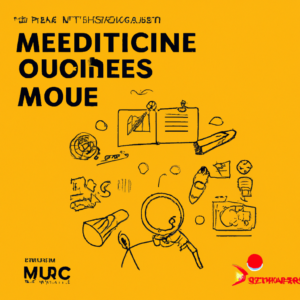Despite the presence of sufficient resources to support a decent lifestyle, many individuals around the world continue to grapple with poverty. This perplexing phenomenon can be attributed to a multitude of factors that hinder the eradication of poverty. In this article, we will explore some of the key reasons why humans find it challenging to escape poverty, even when the means to do so are ostensibly available.
Lack of Access to Education and Skills
One crucial factor that perpetuates the cycle of poverty is the lack of access to quality education and skills training. Education equips individuals with the knowledge and skills necessary to secure better employment opportunities and improve their overall economic prospects. However, in many impoverished regions, educational resources and opportunities are limited, leaving individuals without the means to acquire the necessary skills to escape poverty.
Moreover, even when education is accessible, the quality of education may be subpar, failing to adequately prepare individuals for the demands of the job market. This results in a mismatch between the skills possessed by individuals and the skills required by employers, further exacerbating the challenges faced by those seeking to break free from poverty.
Structural Inequalities and Discrimination
Structural inequalities and discrimination play a significant role in perpetuating poverty. Certain societal structures and systems may inherently favor certain groups while marginalizing others. This can be based on factors such as race, gender, ethnicity, or socio-economic background.
Discrimination in employment, housing, and access to resources can severely limit the opportunities available to individuals from marginalized communities, making it exceedingly difficult for them to escape poverty. Additionally, these structural inequalities contribute to the intergenerational transmission of poverty, as disadvantaged individuals often struggle to provide their children with the necessary resources and opportunities to break the cycle.
Limited Social Mobility
Social mobility, or the ability of individuals to move up the social ladder, is crucial for escaping poverty. However, in many societies, social mobility is severely restricted, with individuals born into poverty finding it incredibly challenging to improve their circumstances.
This limited social mobility can be attributed to various factors, including unequal distribution of wealth and resources, lack of opportunities for upward mobility, and the perpetuation of socio-economic disparities across generations. Without the ability to move up the social ladder, individuals remain trapped in poverty, unable to access the means necessary for a decent lifestyle.
Systemic Issues and Corruption
Systemic issues and corruption within governments and institutions can also hinder poverty eradication efforts. In some regions, resources that are intended to alleviate poverty may be misappropriated or diverted, preventing them from reaching the intended beneficiaries.
Corruption and lack of transparency can undermine the effectiveness of poverty alleviation programs, perpetuating the cycle of poverty and preventing individuals from accessing the necessary resources to improve their living conditions. Additionally, weak governance and institutional inefficiencies can hinder economic growth and development, further exacerbating poverty levels.
Conclusion
The persistence of poverty, despite the availability of adequate resources, is a complex issue with multifaceted causes. Lack of access to education and skills, structural inequalities and discrimination, limited social mobility, and systemic issues such as corruption all contribute to the perpetuation of poverty.
To effectively address this issue, it is essential to implement comprehensive strategies that tackle these underlying factors. This includes improving access to quality education and skills training, promoting equal opportunities for all individuals, enhancing social mobility, and combating corruption and systemic issues. By addressing these challenges head-on, we can work towards breaking the cycle of poverty and creating a more equitable and just society.




